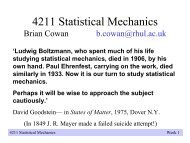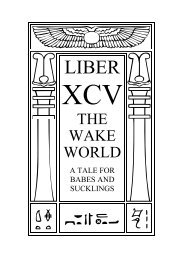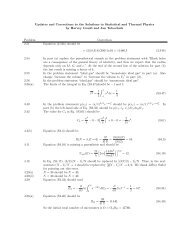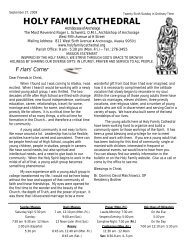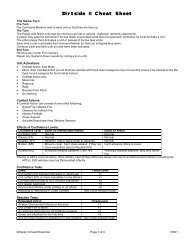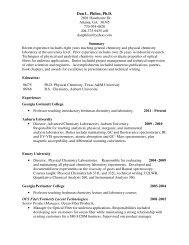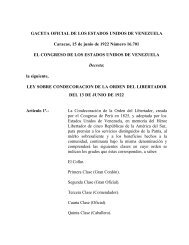A Critique of The German Ideology
A Critique of The German Ideology
A Critique of The German Ideology
Create successful ePaper yourself
Turn your PDF publications into a flip-book with our unique Google optimized e-Paper software.
Karl Marx<br />
THE GERMAN IDEOLOGY<br />
Part I<br />
FEUERBACH.<br />
OPPOSTION OF THE MATERIALIST<br />
AND IDEALIST OUTLOOK<br />
D. PROLETARIANS AND COMMUNISM<br />
Individuals, Class, and Community<br />
In the Middle Ages the citizens in each town were compelled to unite against the landed<br />
nobility to save their skins. <strong>The</strong> extension <strong>of</strong> trade, the establishment <strong>of</strong> communications,<br />
led the separate towns to get to know other towns, which had asserted the same interests<br />
in the struggle with the same antagonist. Out <strong>of</strong> the many local corporations <strong>of</strong> burghers<br />
there arose only gradually the burgher class. <strong>The</strong> conditions <strong>of</strong> life <strong>of</strong> the individual<br />
burghers became, on account <strong>of</strong> their contradiction to the existing relationships and <strong>of</strong> the<br />
mode <strong>of</strong> labour determined by these, conditions which were common to them all and<br />
independent <strong>of</strong> each individual. <strong>The</strong> burghers had created the conditions ins<strong>of</strong>ar as they<br />
had torn themselves free from feudal ties, and were created by them ins<strong>of</strong>ar as they were<br />
determined by their antagonism to the feudal system which they found in existence.<br />
When the individual towns began to enter into associations, these common conditions<br />
developed into class conditions. <strong>The</strong> same conditions, the same contradiction, the same<br />
interests necessarily called forth on the whole similar customs everywhere. <strong>The</strong><br />
bourgeoisie itself with its conditions, develops only gradually, splits according to the<br />
division <strong>of</strong> labour into various fractions and finally absorbs all propertied classes it finds<br />
in existence [1] (while it develops the majority <strong>of</strong> the earlier propertyless and a part <strong>of</strong> the<br />
hitherto propertied classes into a new class, the proletariat) in the measure to which all<br />
property found in existence is transformed into industrial or commercial capital. <strong>The</strong><br />
separate individuals form a class only ins<strong>of</strong>ar as they have to carry on a common battle<br />
against another class; otherwise they are on hostile terms with each other as competitors.<br />
On the other hand, the class in its turn achieves an independent existence over against the<br />
individuals, so that the latter find their conditions <strong>of</strong> existence predestined, and hence<br />
have their position in life and their personal development assigned to them by their class,<br />
become subsumed under it. This is the same phenomenon as the subjection <strong>of</strong> the<br />
separate individuals to the division <strong>of</strong> labour and can only be removed by the abolition <strong>of</strong>



